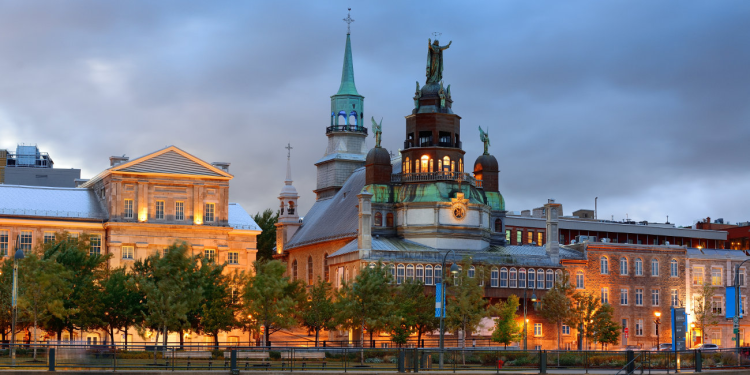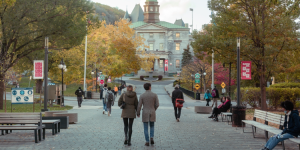
Prospective students, we understand your agonies, enthusiasm, and confusions because we have gone through the same journey. What course to study, where, and how will you benefit from it in the future — are just a few of the questions hanging. But before you start filling in the application forms, be reminded that learning doesn’t shut in the classroom — it’s an ongoing process that takes place in the bar, the cafe, on the streets, the galleries, the concert halls, and the parties.
If international student life fascinates you, and you are targeting top world universities, here's an insight in the best cities for students, who are looking for on campus diversity, safety, employability, or an affordable lifestyle. Whichever education path you take, celebrate your successes and dream big.
The advantages of city life
The choice between an urban and a rural campus can be decisive for the overall student life experience. Urban institutions offer a variety of choices — entertainment, shopping, food, accommodation — that possibly decentralise student life, and extend it beyond the university's physical location. If you are attending a city university, it's more likely for example to not stay in residence halls, but to house hunt with other students depending on your budget and lifestyle. Cities not only guarantee a lively life with exposure to different cultural experiences, but also more part-time job opportunities for better wages.
The best student cities
As ranked (2016) by the higher education data expert QS, the best student cities around the world are:
Paris
Paris hosts 18 universities and approximately 18% of its population are international students. You may find Paris an expensive place to live in, but low tuition fees and student discounts balance the cost of living. So, do you want to study where the biggest intellectual movement of the 17th and 18th centuries took place?
Interesting fact: Most public museums in Paris are free on the first Sunday of every month.
Melbourne
Melbourne has all that a fun student life requires — museums, sunny weather, beaches, festivals, world cuisine, and nightlife. It's an expensive city to live in asking for high tuition fees, but its vibrance will pay you back.
Interesting fact: 38% of Melbourne's population wasn't born in Australia.
Tokyo
Tokyo might be an ideal destination for those students who wish to indulge into tradition, learn a new language, and discover different ethics. But Tokyo is definitely not stuck in the past — it's rightfully standing among the world's two other financial centers: New York and London. In Tokyo — the most populous metropolis in the world — you have good chances to land an internship or a good first job.
Interesting fact: Shinjuku rail station is the world's busiest with over 200 exits.
Sydney
Sydney is the largest city in Australia with four million people from different ethnic backgrounds (English, Chinese, Italian, Greek, Indian, Irish, etc.). So, if you wish your student life to take place in a melting pot, where you will hear as much English as Arabic, Cantonese, Mandarin, Greek, and Vietnamese, then search for courses and institutions in Australia's commercial center.
Interesting fact: 60% of Australia's top companies have their headquarters in Sydney.
London
London is UK's education hub with a plethora of prestigious universities, colleges, and schools. In London you will join a dynamic international student community of approximately 100,000 students coming from over 200 countries, and you will build a strong international network of friends and colleagues.
Interesting fact: The British Library has one of the largest book collections in the world and quiet study areas.
Singapore
If you need to convince your parents to let you study in Singapore, bring up its extreme safety levels and low crime records. The city's international corporate character and financial strength will give you better access to the employment market as a recent graduate.
Interesting fact: Singapore is the fourth most expensive city among 209 cities as per Mercer's 2016 Cost of Living Rankings.
Montreal
There are many things you will love in Montreal — the charming mingling of history and contemporary elements, the maple syrup, and the ice-skating. To top it all off, Montreal has 11 universities — four of them being world class institutions — which charge the lowest tuition fees in Canada.
Interesting fact: Montreal is the second largest French speaking city only after Paris.
Hong Kong
In Hong Kong you will be at the heart of the world's financial activities — banking, investments, and stock exchange. Being such a densely populated financial centre, you will come across people from different cultures making Hong Kong a very global and interesting place to be in. While rent is very expensive and tuition fees somewhere in between, food and transportation costs are reasonable.
Interesting fact: Hong Kong has more skyscrapers than New York.
Berlin
One of Europe's most liberal capital cities with booming art and design happenings, Berlin guarantees a fascinating student life. The abolishment of tuition fees in public universities at undergraduate level, in combination with the introduction of more English courses, make Berlin a whole more attractive destination for international students.
Interesting fact: The best way to move around is by bike, and if you need to take a rest, there are over 2,500 public parks and gardens.
Seoul
Seoul is a fast paced, modern city. If you are dreaming of a career in an international company it might be the right place to study in — Samsung, Kia, Hyundai, and LG are based in Seoul. However, the city isn't particularly diverse, as almost all of Seoul's residents are of Korean descent.
Interesting fact: Shops in Seoul remain open until 11:00 pm while restaurants, cafes, bars, and street vendors until 4:00 am.



















